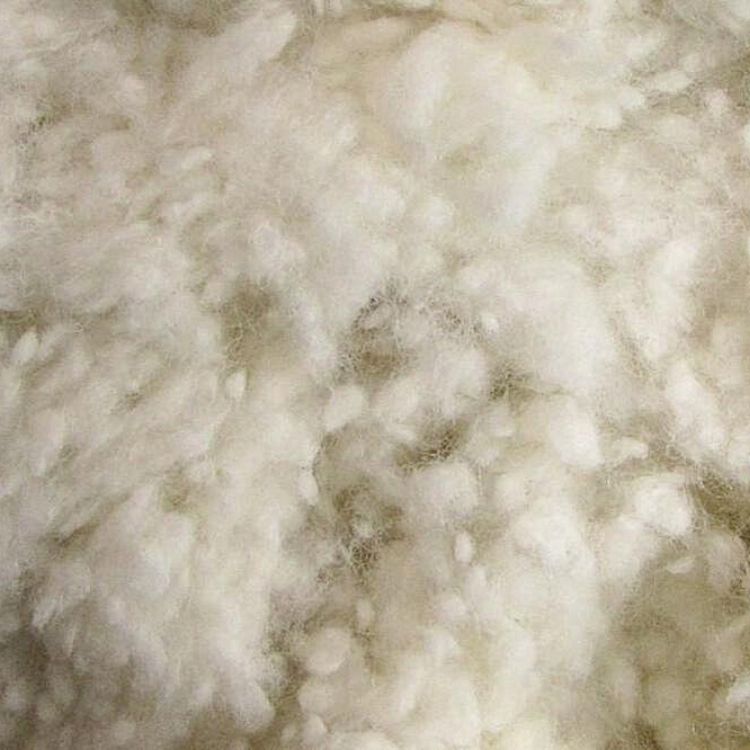
TO GET 10% OFF ON YOUR FIRST ORDER AND BE THE FIRST TO HEAR ABOUT OUR EXCLUSIVE OFFERS, SALES AND NEW COLLECTIONS!
product.id: 312504749
SKU# N0001
pound(s) available: 88
Our World Class Wool is imported from the most premiere places in the world including South America, Australia, New Zealand and Europe. Hand-picked, our growers have met our highest standards of ethical practices that result in a high wool output. We use several different sheep breeds to create our world class batting including Dorset and Columbia.
Packed in 1-lb., 9"x11"x5" bags.
The 100% EcoWool Bolus is essentially pre-felted and arrives in little clumpy bumps that retain its springiness much longer than a more consistent organic wool batting/stuffing choice, and is very similar to a down pillow in texture and use.
Use - Standard pillows use a minimum of 2-3 lbs. of stuffing, depending on how firm a pillow is wanted. A King-sized pillow will use a minimum of 3 to 4 lbs. We recommend covering the pillow with a fairly heavy fabric -- a twill rather than a sateen, for instance -- to help even out the feel of the little bits.
Washing - Because it's essentially pre-felted we strongly recommend hand-washing in cold water, though you can certainly try machine-washing on delicate and hanging to dry (do not use heat drying) While the pillow is drying, it is important to gently tease apart the bolus bits so the pillow remains lofty.
Processing - Eco-wool processing is, of course, much kinder to both the fibers and the planet; mild biodegradable soap is used, much of the wastewater is recycled, harsh chemicals are never used to remove plant matter tangled in the fleeces, and the fibers aren't bleached. There are other differences to conventional processing too -- the wool isn't carbonized or chemically crimped, the sheep aren't dipped in pesticides or subject to mulesing, and the sheep have a proper amount of well-managed pastureland.